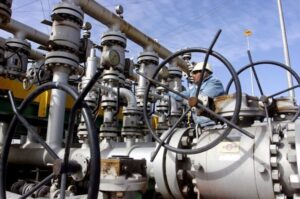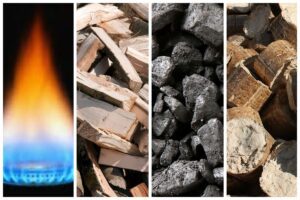
The Cabinet of Ministers of Ukraine has set the heating season from November 1 to March 31, instead of the previous period from October 15 to April 15.
The government formalized its decision by Resolution No. 1267 of October 8, 2025, “On amendments to the Resolution of the Cabinet of Ministers of Ukraine of July 19, 2022, No. 812 ‘On approval of the Regulation on the imposition of special obligations on natural gas market entities to ensure public interests in the process of functioning of the natural gas market regarding the peculiarities of natural gas supply to heat producers and budgetary institutions.’”
Source: https://interfax.com.ua/

NJSC Naftogaz of Ukraine plans to import 2-3 bcm of gas, according to the published memorandum on economic and financial policy for the 5th review of the EFF program with the IMF.
“For the upcoming heating season 2024/25. Ukraine plans to import additional gas for domestic consumption in the amount of up to 2-3 billion cubic meters, while additional gas may be stored by non-residents for the needs of the EU countries in accordance with the baseline scenario,” the document says.
At the same time, it is noted that restrained domestic consumption and growing domestic production limited the need for gas imports in the last heating season.
Regarding import plans for this year’s heating season, it is noted that Naftogaz has secured additional financing for gas imports from the EBRD and bilateral donors.
If Naftogaz faces a liquidity shortage, the government is ready to assess the amount of compensation for the company’s special obligations in 2025 based on its actual documented costs, verified by the State Audit Service and other stakeholders. The relevant calculations will be finalized by the end of August 2025.
“The potential pressure on costs related to gas imports and PSO compensation will be taken into account by adjusting the fiscal balance targets to take into account the above assessment, the results of the audit of the debt of district heating companies (DHCs), available funding, and limited to UAH 60 billion (about 0.8% of GDP),” the document says.
It also notes that the energy sector reform agenda, “as soon as conditions allow,” includes additional gradual increases in gas and electricity tariffs with parallel support for vulnerable consumers, and after the war ends, it will require restoring and strengthening competition in the wholesale and retail gas markets.
It is noted that the government will adopt a roadmap for the gradual liberalization of gas and electricity markets with an implementation plan indicating the timeline for the period after martial law.
As reported, Naftogaz Group CEO Oleksiy Chernyshov said in early October in a commentary to Energoreforma that as of November 1, the company’s purchases of gas in the customs warehouse (CW) mode, which is carried out as a reserve at the expense of the EBRD loan, will be “within 500-600 million cubic meters.”
At the end of 2022, Naftogaz attracted an EBRD loan for EUR 300 million under state guarantees, which created a reserve stock of natural gas in the amount of 748 million cubic meters in the customs warehouse (CU) mode.
A new agreement on the EBRD loan to Naftogaz for EUR 200 million under state guarantees was signed in November 2023. At the time, it was emphasized that it would come into force after the state guarantees were issued. Norway and the Netherlands shared the credit risk with the bank.
The CU regime allows natural gas to be stored in Ukraine’s underground gas storage facilities for three years without paying taxes and customs duties during its further transportation from the country.

Kyiv does not plan to make changes to the schedule for the start of the heating season, Mayor Vitaliy Klitschko said.
“Today, we do not plan any changes in the schedule. So far, heating is connected only at the request of the heads of social institutions. As for all others (household consumers), we will definitely take into account the weather conditions and will inform the people of Kiev about the connection to the central heating” , – Klitschko said on the air of the national telethon on Tuesday.
At the same time, Klitschko recommended that the people of Kiev prepare for the heating season, in particular, insulate windows in houses and porches, as well as purchase warm clothes.
“It’s better to play it safe and get ready. Warm clothes will not be superfluous this winter. We must calculate different developments, because Russian barbarians are trying to destroy the critical infrastructure of Ukrainian cities and towns,” Klitschko summed up.

To date, the state of readiness for the heating season is already more than 80%, Prime Minister of Ukraine Denys Shmyhal said.
“The heating season will begin in Ukraine soon. The most difficult in history. Preparations for it went on in the summer, and continue now. The state of readiness is already more than 80%. Significant coal resources have been accumulated, gas is being pumped into storage facilities,” he said at a government meeting in Friday.
According to Shmyhal, the authorities are forming agreements with partners on additional gas supplies. UAH 1.4 billion was allocated to prepare for emergency situations, almost 1.5 thousand mobile generators and dozens of backup boilers were purchased.
“An operational headquarters has been formed that will quickly resolve any crisis issues. First of all, the issue of eliminating the consequences of Russian attacks on our critical infrastructure. We have been preparing and are preparing for all scenarios. And we will do our best to ensure that this winter Ukrainians are warm, light and water,” Shmygal summed up.

Oleksiy Chernyshov, the Minister for the Development of Communities and Territories of Ukraine, said that the heating season in 2022 will be the most difficult, but tariffs will not increase, the press service of the ministry reported. “The next heating season will start on time, tariffs will not grow and will be stable. It will be the most difficult in the history of Ukraine, but I am sure that we will cope with it. We are working together with local authorities to ensure that the heating season starts on time,” Chernyshov said.
According to him, now the heating industry faces many challenges due to the critical infrastructure destroyed as a result of full-scale Russian aggression in Ukraine. In particular, 331 boiler houses were destroyed or damaged, three heat communal enterprises in the cities of Okhtyrka, Kremenchuk and Chernihiv were destroyed.
“We must restore them before the start of the heating season, and we are determined to do this. Plans have already been developed to restore these enterprises, work is underway,” the minister said.
He also called on Ukrainians to be as careful as possible about keeping warm in their homes this winter.
“We must stop regulating the temperature in the premises by opening windows and prepare “in an adult way” for the next heating season. In particular, by introducing certain household preparation measures with windows, doors, roofs, porches and the like,” he said.

Gas reserves in underground storage facilities at the end of the heating season (HZP) 2021/2022 amount to 9 billion cubic meters. m, coal in warehouses – 1 million tons, said the Prime Minister of Ukraine Denys Shmyhal.
“We have successfully completed the heating season. 9 billion cubic meters of gas in storage, 1 million tons of coal in warehouses. We will begin preparations for the next heating season,” the prime minister said in a televised address on Tuesday evening.
As reported, at the end of the 2020/2021 AWP, as of April 1, there were 0.491 million tons of coal in the warehouses of the TPP Group, while gas reserves amounted to almost 16 billion cubic meters.